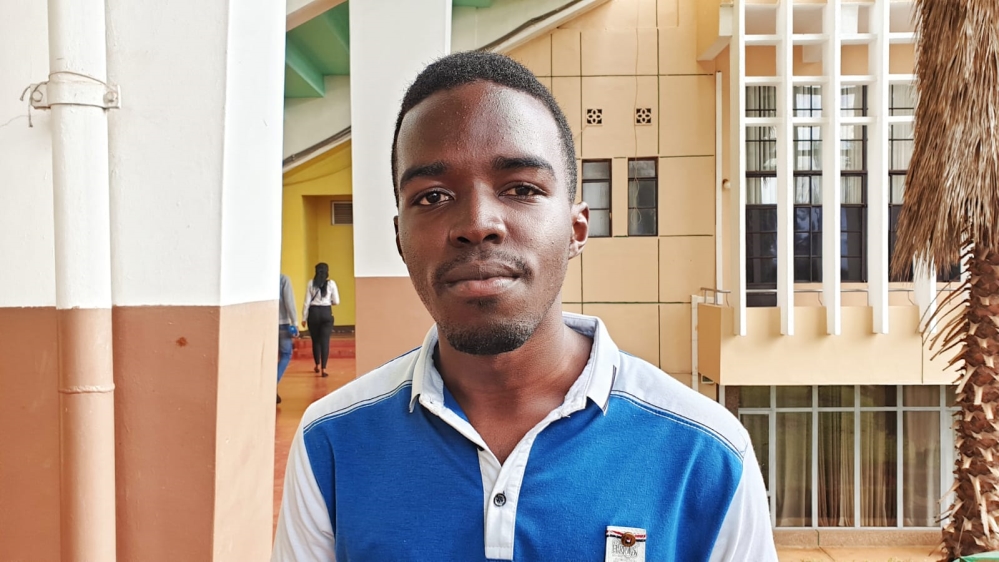Rwanda prepares for week-long commemoration of 1994 genocide
Kigali, Rwanda – Rwanda is set to start a week-long event marking 25 years since the 1994 genocide in which more than 800,000 people were killed, considered one of the worst atrocities of the twentieth century.
Across the capital, Kigali, last minute preparations are being made to get the city ready for the first day of the remembrance on Sunday.
In the city’s national stadium, Amohora, young Rwandans are rehearsing a play that they will perform for world leaders who will attend a vigil at the ground on Sunday.
Most in the 30,000 capacity stadium were not born when more than 800,000 of the Tutsis ethnic group were killed during 100 days of violence by forces and vigilantes from the Hutu ethnic group. Thousands of moderate Hutus were also killed in the violence.
“We should never forget our past,” Deborah Mwanganjye, 19, told Al Jazeera, as her friends practiced a short distance away under a light afternoon drizzle.
“We need to remember our past so we never ever make the same mistakes,” Mwanganjye, who is starting university to study interior design this summer, said.
Like almost all her friends, the genocide – one of the bloodiest events of the last century – has touched her personally.
“Only my dad survived the genocide. The rest of his family were killed. It is tough to take in but that is life,” Mwanganjye said, taking a deep breath while looking at the cloudy sky.
 |
| Except for her father, all of then 9-year-old Deborah Mwanganjye’s direct family members were killed during the 1994 genocide [Hamza Mohamed/Al Jazeera] |
The country’s population was estimated to be around 8 million when the genocide took place. Twenty-five years later, more than half of the country’s 12 million population are born after the genocide, according to official government statistics.
Sheltering from the drizzle in the covered stand of the stadium, Jean Michel Iradukunda, 19, told Al Jazeera h e was one of the lucky few who have not lost family member in the genocide.
“Both my parents and all my siblings are alive. I know I’m very lucky. But I also feel the pain of my friends who have lost family members,” the student, who just graduated from high school, said.
Following the genocide, the tiny central African country banned ethnic labels, removing tribe names from identification cards, and authorities encouraged people to identify themselves as Rwandans – not Hutu, Tutsi or Twa.
Discriminating against someone based on their ethnic background has also been made a crime punishable by jail term.
“I don’t see the need to identify myself using ethnic labels. It only leads to bad things and discrimination. I see myself as Rwandan. Ethnic labels only take you to one path – that of a genocide,” Maurice Kwizerimana, a youth leader who runs Gira Ubumuntu – a charity that looks after street children, told Al Jazeera.
Kwizerimana was five years old on April 7 when the genocide started. He knows how lucky he is to have survived.
“They were killing everyone they suspected of being a Tutsi, even babies. They were going door to door. Then a neighbour came to my family and made me wear a dress. I pretended to be girl and that is how I survived,” he said.
His cousin was not so lucky. She was raped then hacked to death, Kwizerimana said.
 |
| Jean Michel Iradukunda is one of the lucky few who has not lost any family member in the genocide [Hamza Mohamed/ Al Jazeera] |
Moving on
All the three say they are proud how far their country has come since the genocide.
“I’m very happy and proud to be a Rwandan. We have come a long way from the dark days and have moved on. Our country has a bright future. Our country’s strength is its youth,” Iradukunda said.
Thiery Gatete, a political analyst based in Kigali, agrees with them but adds the country still has a long way to go to make sure same mistakes are not repeated.
“The genocide idealogy still exists in the minds of some people. Not many but some. All Rwandans must do more to make sure we challenge them and change their mindset,” Gatete said.
“Banning ethnic labels is the first step. We must take many more steps to eradicate the dangerous ideology that led to the genocide,” Gatete added.
Following the genocide more than 100,000 people were detained for their role in the massacre. Thousands are today serving jail term for taking part in the slaughter of their fellow countrmen.
But for Rwandans youth, they say forgiveness is the way forward.
“I can’t forget the bad things that were done to my family. But I have forgiven the perpetrators. It is the best thing to do if we want our country to move forward,” Mwanganjye said.
Follow Hamza Mohamed on Twitter: @Hamza_Africa



